God IS faithful in all He does as He carries out His divine will. Because He is faithful, we His people can look forward to the future in both this life and for eternity. We do not have to be overcome by worry about the needs in our lives.
Following are some Scripture passages that explain the faithfulness of God, and in turn can build up our faith and trust in the Lord God Almighty.
****************
1. Matthew 6:25-34
“(25) For this reason I say to you, do not be worried about your life, as to what you will eat or what you will drink; nor for your body, as to what you will put on. Is not life more than food, and the body more than clothing? (26) Look at the birds of the air, that they do not sow, nor reap nor gather into barns, and yet your heavenly Father feeds them. Are you not worth much more than they? (27) And who of you by being worried can add a single hour to his life? (28) And why are you worried about clothing? Observe how the lilies of the field grow; they do not toil nor do they spin, (29) yet I say to you that not even Solomon in all his glory clothed himself like one of these. (30) But if God so clothes the grass of the field, which is alive today and tomorrow is thrown into the furnace, will He not much more clothe you? You of little faith! (31) Do not worry then, saying, ‘What will we eat?’ or ‘What will we drink?’ or ‘What will we wear for clothing?’ (32) For the Gentiles eagerly seek all these things; for your heavenly Father knows that you need all these things. (33) But seek first His kingdom and His righteousness, and all these things will be added to you. (34) So do not worry about tomorrow; for tomorrow will care for itself. Each day has enough trouble of its own.”
****************
2. Dueteronomy 7:8-10
“(8) but because the LORD loved you and kept the oath which He swore to your forefathers, the LORD brought you out by a mighty hand and redeemed you from the house of slavery, from the hand of Pharaoh king of Egypt. (9) Know therefore that the LORD your God, He is God, the faithful God, who keeps His covenant and His lovingkindness to a thousandth generation with those who love Him and keep His commandments; (10) but repays those who hate Him to their faces, to destroy them; He will not delay with him who hates Him, He will repay him to his face.”
—-
In The Attributes of God (Baker Book House, Grand Rapids, Michigan – 2001) (click here) A. W. Pink discusses the working out of God’s faithfulness in His dealing with all of mankind (pages 52-56)…
“Know therefore that the Lord thy God, He is God, the faithful God” (Deuteronomy 7:9). This quality is essential to His being, without it He would not be God. For God to be unfaithful would be to act contrary to His nature, which were impossible: “If we believe not, yet He abideth faithful; He cannot deny Himself” (2 Timothy 2:13).”
***************
3. 1 Corinthians 1:4-9
“(4) I thank my God always concerning you for the grace of God which was given you in Christ Jesus, (5) that in everything you were enriched in Him, in all speech and all knowledge, (6) even as the testimony concerning Christ was confirmed in you, (7) so that you are not lacking in any gift, awaiting eagerly the revelation of our Lord Jesus Christ, (8) who will also confirm you to the end, blameless in the day of our Lord Jesus Christ. (9) God is faithful, through whom you were called into fellowship with His Son, Jesus Christ our Lord.”
—-
Again, A. W. Pink says…
“God is true. His Word of Promise is sure. In all His relations with His people God is faithful. He may be safely relied upon. No one ever yet really trusted Him in vain. We find this precious truth expressed almost everywhere in the Scriptures, for His people need to know that faithfulness is an essential part of the Divine character. This is the basis of our confidence in Him. But it is one thing to accept the faithfulness of God as a Divine truth, it is quite another to act upon it. God has given us many “exceeding great and precious promises,” but are we really counting on His fulfillment of them? Are we actually expecting Him to do for us all that He has said? Are we resting with implicit assurance on these words, “He is faithful that promised” (Hebrews 10:23)?
****************
4. 1 Corinthians 10:13
“No temptation has overtaken you but such as is common to man; and God is faithful, who will not allow you to be tempted beyond what you are able, but with the temptation will provide the way of escape also, so that you will be able to endure it.”
—-
5. 2 Thessalonians 3:2-4
“(2) and that we will be rescued from perverse and evil men; for not all have faith. (3) But the Lord is faithful, and He will strengthen and protect you from the evil one. (4) We have confidence in the Lord concerning you, that you are doing and will continue to do what we command.”
—-
6. 2 Timothy 2:11-13
“(11) It is a trustworthy statement:
For if we died with Him, we will also live with Him;
(12) If we endure, we will also reign with Him;
If we deny Him, He also will deny us;
(13) If we are faithless, He remains faithful, for He cannot deny Himself.”
—-
Following are more of A. W. Pink’s observations on God’s faithfulness, focusing on God’s preservation of His people…
“God is faithful in preserving His people. “God is faithful, by whom ye are called unto the fellowship of His Son” (1 Corinthinans 1:9). In the previous verse promise was made that God would confirm unto the end His own people. The Apostle’s confidence in the absolute security of believers was founded not on the strength of their resolutions or ability to persevere, but on the veracity of Him that cannot lie. Since God has promised to His Son a certain people for His inheritance, to deliver them from sin and condemnation, and to make them participants of eternal life in glory, it is certain that He will not allow any of them to perish.”
*****************
7. Hebrews 3:1-3
“(1) Therefore, holy brethren, partakers of a heavenly calling, consider Jesus, the Apostle and High Priest of our confession; (2) He was faithful to Him who appointed Him, as Moses also was in all His house. (3) For He has been counted worthy of more glory than Moses, by just so much as the builder of the house has more honor than the house.”
****************
8. 1 Peter 4:19
“Therefore, those also who suffer according to the will of God shall entrust their souls to a faithful Creator in doing what is right.”
***************
9. Revelation 21:4-6
“(4) and He will wipe away every tear from their eyes; and there will no longer be any death; there will no longer be any mourning, or crying, or pain; the first things have passed away.”
(5) And He who sits on the throne said, “Behold, I am making all things new ” And He said, “Write, for these words are faithful and true.” (6) Then He said to me, “It is done. I am the Alpha and the Omega, the beginning and the end. I will give to the one who thirsts from the spring of the water of life without cost.”
—-
10. Revelation 22:1-7
“(1) Then he showed me a river of the water of life, clear as crystal, coming from the throne of God and of the Lamb, (2) in the middle of its street. On either side of the river was the tree of life, bearing twelve kinds of fruit, yielding its fruit every month; and the leaves of the tree were for the healing of the nations. (3) There will no longer be any curse; and the throne of God and of the Lamb will be in it, and His bond-servants will serve Him; (4) they will see His face, and His name will be on their foreheads. (5) And there will no longer be any night; and they will not have need of the light of a lamp nor the light of the sun, because the Lord God will illumine them; and they will reign forever and ever.”
“(6) And he said to me, “These words are faithful and true“; and the Lord, the God of the spirits of the prophets, sent His angel to show to His bond-servants the things which must soon take place. (7) And behold, I am coming quickly Blessed is he who heeds the words of the prophecy of this book.”
*****************
Other quotes from A. W. Pink regarding God’s faithfulness…..
—-
“Thy testimonies which Thou hast commanded are righteous and very faithful” (Psalms 119:138). God has not only told us the best, but He has not withheld the worst. He has faithfully described the ruin which the Fall has effected. He has faithfully diagnosed the terrible state which sin has produced. He has faithfully made known his inveterate hatred of evil, and that He must punish the same. He has faithfully warned us that He is “a consuming fire” (Hebrews 12:29). Not only does His Word abound in illustrations of His fidelity in fulfilling His promises, but it also records numerous examples of His faithfulness in making good His threatenings. Every stage of Israel’s history exemplifies that solemn fact. So it was with individuals: Pharaoh, Korah, Achan and a host of others are so many proofs. And thus it will be with you, my reader: unless you have fled or do flee to Christ for refuge, the everlasting burning of the Lake of Fire will be your sure and certain portion. God is faithful.”
—-
“God is faithful in disciplining His people. He is faithful in what He withholds, no less than in what He gives. He is faithful in sending sorrow as well as in giving joy. The faithfulness of god is a truth to be confessed by us not only when we are at ease, but also when we are smarting under the sharpest rebuke. Nor must this confession be merely of our mouths, but of our hearts, too. When God smites us with the rod of chastisement, it is faithfulness which wields it. To acknowledge this means that we humble ourselves before Him, own that we fully deserve His correction, and instead of murmuring, thank Him for it. God never afflicts without reason. “For this cause many are weak and sickly among you” (1 Corinthians 11:30), says Paul, illustrating this principle. When His rod falls upon us let us say with Daniel, “O Lord, righteousness belongeth unto Thee, but unto us confusion of faces’ (Daniel 9:7)”
—-
“I know, O Lord, that Thy judgments are right, and that Thou in faithfulness hast afflicted me” (Psalms 119:15). Trouble and affliction are not only consistent with God’s love pledged in the everlasting covenant, but they are parts of the administration of the same. God is not only faithful notwithstanding afflictions, but faithful in sending them. “The will I visit their transgression with the rod, and their iniquity with stripes: My lovingkindness will I not utterly take from him nor suffer My faithfulness to fail” (Psalms 89:32, 33). Chastening is not only reconcilable with God’s lovingkindness, but it is the effect and expression of it. It would much quieten the minds of God’s people if they would remember that His covenant love binds Him to lay on them seasonable correction. Afflictions are necessary for us: “In their affliction they will seek Me early” (Hosea 5:15)”
—-
“God is faithful in glorifying His people. “Faithful is He which calleth you, who also will do” (1 Thessalonians 5:24). The immediate reference here is to the saints being preserved blameless unto the coming of our Lord Jesus Christ. God treats with us not on the ground of our merits (for we have none), but for His own great name’s sake. God is constant to Himself and to His own purpose of grace whom He called. . .them He also glorified (Romans 8:30). God gives a full demonstration of the constancy of His everlasting goodness toward His elect by effectually calling them out of darkness into His marvelous light, and this should fully assure them of the certain continuance of it. The foundation of God standeth sure (2 Timothy 2:19). Paul was resting on the faithfulness of God when he said, I know whom I have believed, and am persuaded that He is able to keep that which I have committed unto Him against that day (2 Timothy 1:12).”
*****************
These last words quoted from A.W. Pink are our application regarding how we should respond to God in regards to His faithfulness….
“The apprehension of this blessed truth will preserve us from worry. To be full of care, to view our situation with dark forebodings, to anticipate the morrow with sad anxiety, is to reflect upon the faithfulness of God. He who has cared for His child through all the years, will not forsake him in old age. He who has heard your prayers in the past, will not refuse to supply your need in the present emergency. Rest on Job 5:19, “He shall deliver thee in six troubles: yea, in seven there shall be no evil touch thee.”
****************
God is faithful! We can trust Him, now and forever, in every aspect and circumstance of life. Amen.
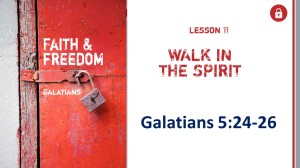



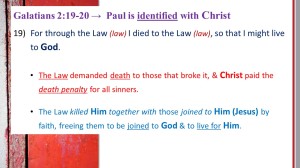




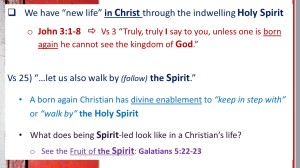





















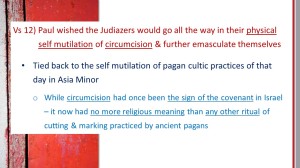

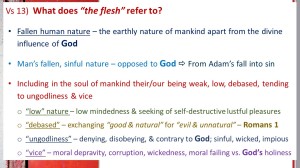

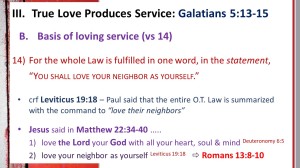


 Manaslu (also known as Kutang) is the eighth highest mountain in the world, part of the Nepalese Himalayas. Its name, which means “Mountain of the Spirit”, comes from the Sanskrit word Manasa, meaning “intellect” or “soul”. Manaslu is 8,156 metres (26,759 ft) above mean sea level (source:
Manaslu (also known as Kutang) is the eighth highest mountain in the world, part of the Nepalese Himalayas. Its name, which means “Mountain of the Spirit”, comes from the Sanskrit word Manasa, meaning “intellect” or “soul”. Manaslu is 8,156 metres (26,759 ft) above mean sea level (source:  Approaching the Manaslu Mountain Summit
Approaching the Manaslu Mountain Summit Mount Manaslu
Mount Manaslu Mount Manaslu
Mount Manaslu